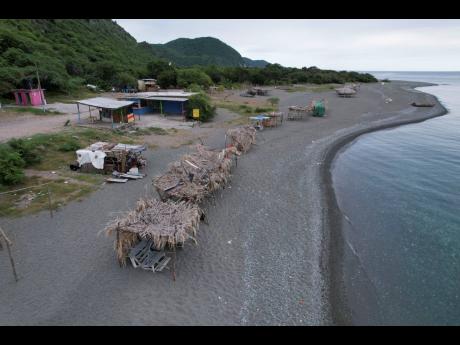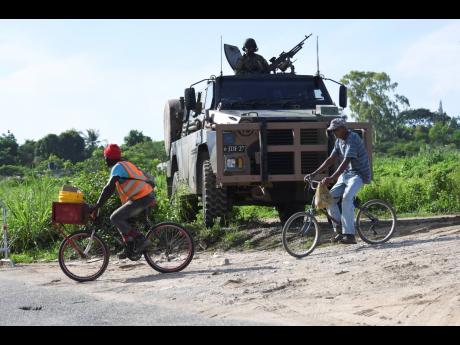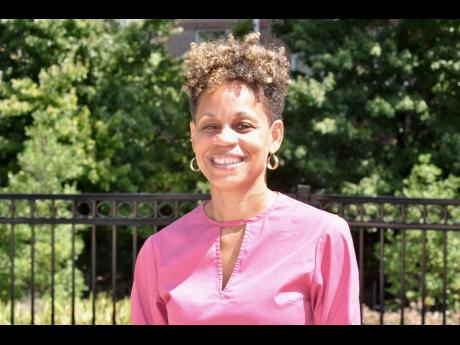Maziki Thame | Dispossession, politics and land reform in Jamaica
Those who understand the value of land understand that it is the means to control the nation, its resources, its people. Who has the land can enjoy it for himself. Recent developments in the struggle over land should tell us where we are going as a nation. The demolition of homes at Clifton, the struggle over lands at Bob Marley Beach, and claims by the Government that they are not in the business of selling the beach alongside the announcement of the expansion of tourism into luxury tourism in that area tell us for whom the land is being claimed.
We are at a future-determining moment in Jamaica. The future can look worse for the many and better for the few. That is the way it has been in Jamaica since the first European planted their flag and claimed the land. The history of land since their arrival has been the history of dispossession and clearing to enrich those with might.
Sugar cane plantations sucked the land of its water and made white ‘planters’ rich. Whites were not, however, actually planters. They worked indigenous Tainos to death on the land. They then replaced them with Africans who planted and reaped cane to enrich whites and grew food on marginal plantation lands to feed themselves. From those marginals lands, Africans also started the market system, which grew alongside the plantation where African women traded food and saved some money to prepare them for freedom whenever it would come.
FLED PLANTATIONS
And when freedom did come, Africans fled the plantations to lands where they could not be reached. On those rocky hillsides they grew bananas, which diversified the economy, and other food to nourish themselves. But they would not be left alone. Their value was to work the plantations. Through taxation, the colonial/planter government brought them into low-wage labour.
Land and politics have long been tied. Control of land was also attached to political enfranchisement. If you had a certain amount of land (property and money), you could run for office (so to speak). Hence when Paul Bogle and his people in St Thomas sought to gain land for the so-called peasants, they understood its value to controlling the nation, but they were brutally defeated and buried in mass graves.
Bogle understood that control of the land is political. Our government understands it. Once again in St Thomas, there is a claim for control in the nation and access to its resources. Control of Bob Marley Beach and the lands surrounding it is no small thing. We are told that when the hotel is built, the nation will develop. We will have a new luxury hotel. And what will be lost in this view of development?
Tourism based on control of land around the beach is sold to us as the route to development. In this model, the beach is sold to tourists as a piece of paradise. They can come to Jamaica and feel all right. But we the people are dispossessed. We have been losing access to the shore and enjoyment of the beach in this model of development. And the prime minister tells us, in the version where we have the beach, that it is poverty that we are promoting.
LOW-WAGE WORK
The descendants of Africans who slaved on this land are promised, in turn, low-wage work in hotels. They are not promised housing, and they cannot afford it either based on the wages they will get in this model of development. And if they dare find themselves on lands suddenly deemed valuable, they will be cleared from the land as they were in that first clearing after independence in 1966. The clearing of lands at Clifton harkens to the past and tells us something of where the descendants of enslaved Africans belong.
This land was never intended for the enjoyment of Africans. It was intended for the enrichment of the whole continent of Europe. And hundreds of years later, we want to build hotels for their luxury and for Jamaicans to labour on low wages. We could have a different Jamaica: one where the land belongs to the people. In that version of development, the people could feed themselves from the land and they do not have to return to the plantation (the hotel).
In the version of development where the land belongs to the people, vast lands should not be allowed to be accumulated by a few. That model should have ended with slavery, where great houses with gardens were built and worked by Africans for white pleasure while the builders and workers were huddled in huts on marginal lands.
So-called squatters are not different than the ex-enslaved in emancipation. Those who occupy land not evidently in use are trying to help themselves survive and live in dignity. The practice is not without its problems,, but it is the product of a model of development dependent on inequality. If politics is to help ‘the people’ live well, we should think of the land as Bogle did: as the means to give the nation to the people historically dispossessed.
Of urgency is land reform that tends towards equality. It means the model of development should not suck the land of its water. It means the land should be available for the pleasure of the people who live in it. It means the land should be able to grow food to feed us. It means the markets connected to the food growers must be prioritised. It means we cannot sell all the land to private developers for their personal enrichment. It means land must be left green: free of buildings and obstructions to our leisure. It means the people must have adequate housing. It means the land must be defended for the people.
Dr Maziki Thame is a senior lecturer at the Institute for Gender and Development Studies, UWI, Mona. Send feedback to columns@gleanerjm.com



